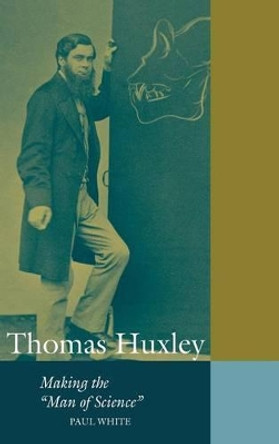Dubbed 'Darwin's Bulldog' for his combative role in the Victorian controversies over evolutionary theory, Thomas Huxley has been widely regarded as the epitome of the professional scientist who emerged in the nineteenth century from the restrictions of ecclesiastical authority and aristocratic patronage. Yet from the 1850s until his death in 1895, Huxley always defined himself as a 'man of science', a moral and religious figure, not a scientist. Exploring his relationships with his wife, fellow naturalists, clergymen and men of letters, White presents a new analysis of the authority of science, literature, and religion during the Victorian period, showing how these different practices were woven into a fabric of high culture, and integrated into institutions of print, education and research. He provides a substantially different view of Huxley's role in the evolution debates, and of his relations with his scientific contemporaries, especially Richard Owen and Charles Darwin.
This biography of Thomas Huxley reflects on the historical significance of scientific authority.Reviews'... cogently argued account ... Paul White has created a sensitive and multifaceted portrait of Huxley ... A particular strength ... is the treatment of Huxley's relationships with Owen and Charles Darwin. ... One of the most consistently developed aspects of White's portrait is the depiction of Huxley as a defender of high culture ... beautifully written and persuasive account ...' British Journal of the History of Science
Book InformationISBN 9780521649674
Author Paul WhiteFormat Paperback
Page Count 222
Imprint Cambridge University PressPublisher Cambridge University Press
Weight(grams) 310g
Dimensions(mm) 232mm * 153mm * 13mm









